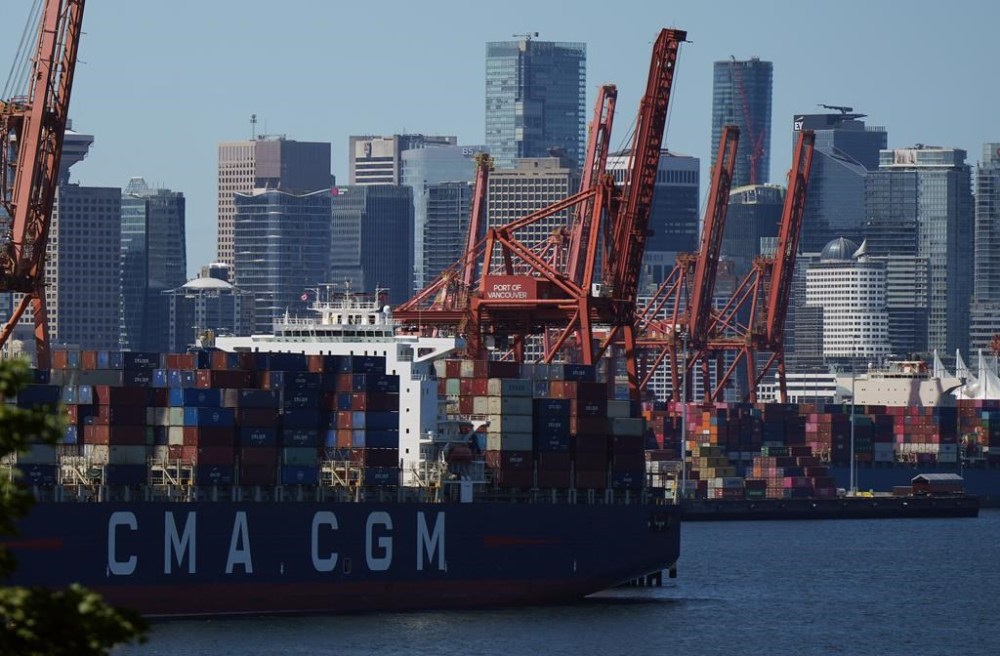Timeline of events surrounding failed talk leading to the B.C. port strike
Advertisement
Read this article for free:
or
Already have an account? Log in here »
To continue reading, please subscribe:
Monthly Digital Subscription
$0 for the first 4 weeks*
- Enjoy unlimited reading on winnipegfreepress.com
- Read the E-Edition, our digital replica newspaper
- Access News Break, our award-winning app
- Play interactive puzzles
*No charge for 4 weeks then price increases to the regular rate of $19.00 plus GST every four weeks. Offer available to new and qualified returning subscribers only. Cancel any time.
Monthly Digital Subscription
$4.75/week*
- Enjoy unlimited reading on winnipegfreepress.com
- Read the E-Edition, our digital replica newspaper
- Access News Break, our award-winning app
- Play interactive puzzles
*Billed as $19 plus GST every four weeks. Cancel any time.
To continue reading, please subscribe:
Add Free Press access to your Brandon Sun subscription for only an additional
$1 for the first 4 weeks*
*Your next subscription payment will increase by $1.00 and you will be charged $16.99 plus GST for four weeks. After four weeks, your payment will increase to $23.99 plus GST every four weeks.
Read unlimited articles for free today:
or
Already have an account? Log in here »
Hey there, time traveller!
This article was published 19/07/2023 (839 days ago), so information in it may no longer be current.
The union representing about 7,400 port workers in British Columbia has rescinded a 72-hour strike notice that could have shut down cargo movements across the province again on Saturday.
Here is a timeline surrounding the events.
2022

Nov. 30: The British Columbia Maritime Employers Association provides notice to commence collective bargaining to the International Longshore and Warehouse Union Canada.
2023
Feb. 16: Negotiations begin.
March 20: The ILWU serves a notice of dispute to the federal government, signalling an impasse, and requests the appointment of a conciliation officer.
March 29: Talks enter a 60-day conciliation period.
March 31: The existing collective agreement between the BCMEA and the ILWU expires.
May 30: Conciliation ends. Talks enter a cooling-off period of 21 days.
June 5: The ILWU’s negotiating committee authorizes a strike vote to be conducted on June 9 and 10.
June 12: The ILWU says members voted 99.24 per cent in favour of supporting strike action if necessary.
June 28: The ILWU serves 72-hour strike notice.
June 30: Both sides say cruise ships will continue to be serviced.
July 1: Strike commences at B.C. ports, shutting down operations at most of the province’s marine terminals.
July 3: The ILWU says the BCMEA has walked away from the negotiating table. The BCMEA says it is a pause to reset talks.
July 8: The two sides meet again with mediators about a deadlock on maintenance work. The BCMEA says the ILWU rejected a proposal.
July 11: Federal Labour Minister Seamus O’Regan asks a mediator to draft terms for a potential settlement agreement.
July 13: The BCMEA says a tentative, four-year agreement has been reached with the ILWU. Port operations resume. In a tweet, O’Regan declares “the strike is over.”
July 18: The ILWU says its leadership caucus voted down the mediator’s terms, and workers are back on strike. Picket lines resume. O’Regan and federal Transport Minister Omar Alghabra say in a statement that the disruptions at B.C. ports “cannot go on” and officials are now looking at “all options.”
July 19: The Canada Industrial Relations Board rules the ILWU’s move to strike on July 18 was unlawful because no 72-hour notice was provided. The ILWU issues a new 72-hour notice to strike, but rescinds the notice hours later. Prime Minister Justin Trudeau convenes the incident response group.
This report by The Canadian Press was first published July 19, 2023.


